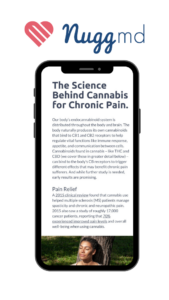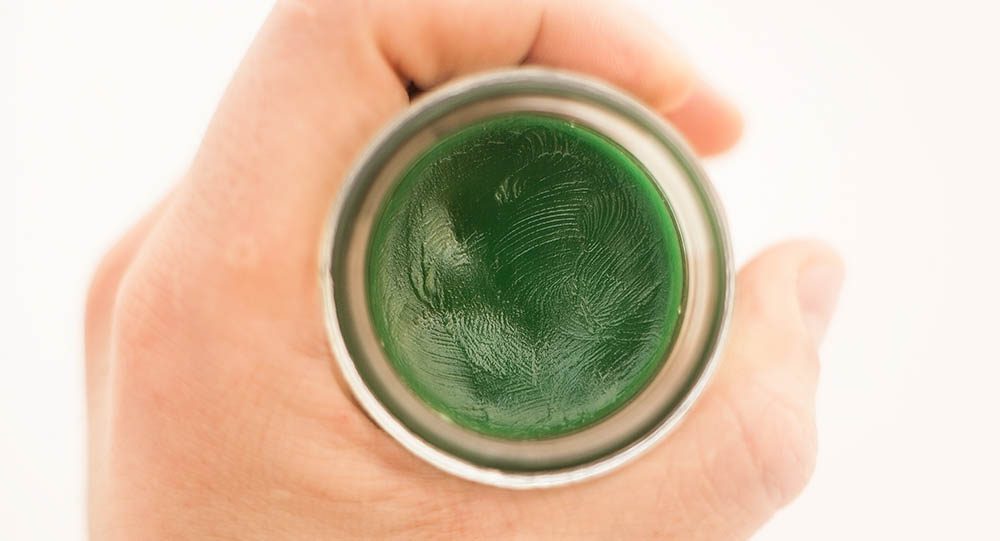In This Article
- What is a Migraine?
- The Link Between CBD and Migraines
- CBD Oil for Migraines: Does It Work?
- What are the Risks of Using CBD Oil for Migraines?
- Best CBD for Migraine Relief
- Is CBD legal?
- Can I get high on CBD?
- Can I overdose on CBD?
- Will CBD show up on a drug test?
- How long will the CBD stay in the body?
- When should I not use CBD for migraines?
- References
It’s no secret that migraines can significantly impact an individual’s quality of life. Migraines affect more than one billion individuals yearly, making them an all-too-common health concern.1
CBD is a compound that’s naturally found in the cannabis plant. CBD has recently risen in popularity as more people realize its vast array of benefits. Learning more about CBD can be a great way to decide if it’s right for you, but it’s always important to speak with your doctor before adding or removing something from your health and wellness routine.
Dealing with migraines can be debilitating, so many people are curious about their options. Interestingly, there's good reason to believe that CBD may offer hope to people suffering from migraines.
What is a Migraine?
Migraines are a specific condition. There are multiple types of migraines, with one of the most significant differences being the symptoms they present. Individuals can experience symptoms that exist on a spectrum, with some individuals still being able to function during a migraine and others being completely debilitated.
Contrary to what many believe, migraines and headaches are not the same thing. Interestingly, headaches are actually a symptom of migraines - with migraines being a much larger and more complex issue.
Common symptoms of migraines include:
- Pain or throbbing on one side of the head
- Constipation
- Yawning
- Fluid retention
- Light sensitivity
- Aura
- Dots in the field of vision
As you can see from these symptoms, migraines are much more than just head pain. Instead, they can affect the whole body and be a serious health concern.
There isn’t one sole cause of migraines. An individual’s susceptibility to migraines can depend on a variety of factors, including hormones, lifestyle (drinking alcohol, etc.), age, and genetics.
The Link Between CBD and Migraines

There hasn’t been extensive research done to examine any effects of CBD on migraines, but the research that has been done is hopeful. One study found that cannabinoids, in general, could help alleviate migraines and pain.2 CBD could likely be helpful for migraine relief, but it’s impossible to predict the level of relief an individual will have.
When it comes to using CBD oil for migraines, dosage is an important factor. Some individuals may receive relief at smaller doses, but it’s also possible that individuals may need higher doses in extreme cases. Some people start with a high dose, but that’s not always necessary and may cause adverse side effects, so it’s best to start conservatively.
CBD Oil for Migraines: Does It Work?
While a small amount of research has been done to examine CBD and migraines, an even smaller amount of research points to CBD oil specifically for migraines. Currently, there are two ongoing clinical trials, with one examining oral CBD and the other looking at inhaled CBD.3
Using CBD oil for migraines has multiple benefits. It provides individuals with a relatively easy-to-dose method that is discreet, can be added to food, and avoids smoking. CBD oil made with nanoemulsions and other absorption-enhancing techniques may take effect much quicker than your typical edible, which may be beneficial for quick relief.
What are the Risks of Using CBD Oil for Migraines?

Just as with any substance, there are some potential risks to be aware of when it comes to using CBD oil for migraines.
While it’s improbable that CBD oil would make a migraine worse, it’s theoretically possible. This is one of the reasons why it’s important to understand how your body reacts to CBD on its own, so that you can potentially predict how you may respond to using it for migraines.
When you’re using CBD products, it’s essential to make sure you’re buying them from a reputable source. CBD products typically have ingredients other than solely CBD, so it’s important to ensure you’re reading ingredient lists and staying informed about the products you’re using.
It’s possible that CBD oil could increase some of the symptoms of a migraine, such as nausea. While this is possible, it’s very unlikely, and adverse effects are typically noted when very high amounts of CBD are consumed.4 If you’re worried about experiencing negative effects from CBD use, consider trying CBD oil on its own when you’re not experiencing a migraine. This can give you an understanding of how your body reacts to the substance and help you plan for the future.
Speak with your doctor before using CBD if you take any medications. This is a good way to make sure that there aren’t any potential interactions that could occur. It’s always a good idea to seek medical advice before incorporating something new into your health and wellness routine. Don’t be afraid to contact your doctor for more information about CBD for your specific goals.
One of the most significant risks of using CBD oil for migraines is consuming too much. Consuming too much CBD may have side effects like lethargy, diarrhea, nausea, or drowsiness.4 These symptoms may easily be avoided by understanding your own tolerance and purchasing a product that’s easy to dose and free of contaminants. If you’re new to dosing CBD, consider purchasing an edible product so that you can visually see how much you’re consuming.
When taken at extremely high doses, it’s possible that CBD oil could have an adverse effect on the kidneys.5 If you currently have kidney issues, consider speaking with your doctor about the best course of action and discussing whether or not CBD oil could be the right choice for you.
If you experience psychosis, extreme vomiting, or lasting drowsiness, consider seeking medical attention. While most people can wait out the symptoms that arise from consuming too much CBD, there are situations in which medical attention can be both helpful and necessary.

Find natural, lasting relief with our comprehensive (and completely free) patient’s guide to medical cannabis for pain relief.
Best CBD for Migraine Relief
If you’re wondering what the best CBD oil for migraines is, then you’ve come to the right place! It’s simple: the best CBD oil for migraines is one that’s made safely and purchased from a reputable source. If you’re considering purchasing CBD oil for the first time, consider learning about different product options and researching various brands. This can help you learn more about various products' ingredients and the brands' core values.
Let’s review a few CBD products that some people use for migraines…
- Mary's Nutritionals Remedy Tincture: This tincture is a comprehensive option that may provide a variety of benefits. This product comes with 250 servings, so you can be sure that it’ll last for a long time! Not only does this tincture have CBD, but it also contains cinnamon oil and myrrh. Made by a reputable brand, this is a product that you won’t want to miss out on.
- Papa and Barkley Hemp Releaf Drops: Interestingly, this product was formulated to increase the metabolism so that it may provide quicker relief compared to other products on the market.
- Charlotte's Web Daily Wellness Gummies: This could be the perfect gummy if you want to be proactive about your CBD. Consumers report this gummy supports calmness, helps moods, and can even help you drift off to sleep. One benefit of gummies is that they’re very easy to dose. This specific gummy was meant to be taken daily, so it’s a great way to slowly add some CBD into your routine and see how you respond to it.
- Mary's Nutritionals Transdermal Patch: This transdermal patch could be the right choice if you want to avoid edible options. One unique aspect of this product is that it’s intended to be long-lasting.
- Mary's Medicinals Capsules: Capsules are an excellent way to take CBD. They are easy to dose, and capsules may provide lasting relief as the body metabolizes them. If you are going to be taking capsules, it’s important to look at any instructions the brand gives. For example, these capsules aren’t supposed to be taken on an empty stomach.

Is CBD legal?
Yes, CBD is legal. Some states have age requirements for purchasing CBD, in which case many states require that individuals be 18 in order to purchase. CBD is also sold online.
Can I get high on CBD?
CBD is different from THC. In short, CBD will not get you high because it doesn’t have THC. THC is the compound in cannabis that produces the high it’s associated with.
Can I overdose on CBD?
While it’s not possible to have a fatal overdose of CBD, it is possible to consume too much. Individuals who have consumed too much CBD may experience a variety of symptoms depending on their own biology and how much they consumed. If you’re worried about overdosing on CBD, consider selecting a product that’s easy to dose and starting with the smallest dose possible. You can then work your way up to a higher dose (that’s still reasonable) if you know that your body tolerates the CBD well.
Will CBD show up on a drug test?
The answer to this question depends on one thing: contaminants. Products that solely contain CBD should not raise a red flag on drug tests. However, some CBD products contain more THC (the substance that will raise a red flag on drug tests) than advertised. This means that sometimes individuals don’t realize they’ve consumed THC. If you’re worried about passing a drug test, consider avoiding CBD products until more testing regulations and standards are implemented.
How long will the CBD stay in the body?
How long CBD stays in the body depends on a wide variety of factors, including how often an individual uses CBD, how much of it they consume, and their metabolism. Unfortunately, there isn’t one clear answer to how long CBD will stay in your system. You can do some things, such as drinking water and exercising, that can help your body process the CBD faster.
When should I not use CBD for migraines?
If you don’t feel comfortable using CBD or your doctor has recommended against it, then it’s most likely not the right option for you. Taking other medications is another factor to consider. It’s possible that some medications could have interactions with CBD, so consider reaching out to your doctor and getting more information about which options are the best choice for you.
References
- Amiri P, Kazeminasab S, Nejadghaderi SA, et al. Migraine: A Review on Its History, Global Epidemiology, Risk Factors, and Comorbidities. Front Neurol. 2022;12:800605. Published 2022 Feb 23. doi:10.3389/fneur.2021.800605
↩︎ - Baron EP. Medicinal Properties of Cannabinoids, Terpenes, and Flavonoids in Cannabis, and Benefits in Migraine, Headache, and Pain: An Update on Current Evidence and Cannabis Science. Headache: The Journal of Head and Face Pain. 2018;58(7):1139-1186. doi:https://doi.org/10.1111/head.13345 ↩︎
- Greco R, Francavilla M, Demartini C, et al. Correction: Characterization of the biochemical and behavioral effects of cannabidiol: implications for migraine. J Headache Pain. 2023;24(1):67. Published 2023 Jun 5. doi:10.1186/s10194-023-01605-1 ↩︎
- Huestis MA, Solimini R, Pichini S, Pacifici R, Carlier J, Busardò FP. Cannabidiol Adverse Effects and Toxicity. Current Neuropharmacology. 2019;17(10):974-989. doi:https://doi.org/10.2174/1570159X17666190603171901 ↩︎
- Park F, Potukuchi PK, Moradi H, Kovesdy CP. Cannabinoids and the kidney: effects in health and disease. American Journal of Physiology-Renal Physiology. 2017;313(5):F1124-F1132. doi:https://doi.org/10.1152/ajprenal.00290.2017 ↩︎
The information in this article and any included images or charts are for educational purposes only. This information is neither a substitute for, nor does it replace, professional legal advice or medical advice, diagnosis, or treatment. If you have any concerns or questions about laws, regulations, or your health, you should always consult with an attorney, physician or other licensed professional.




